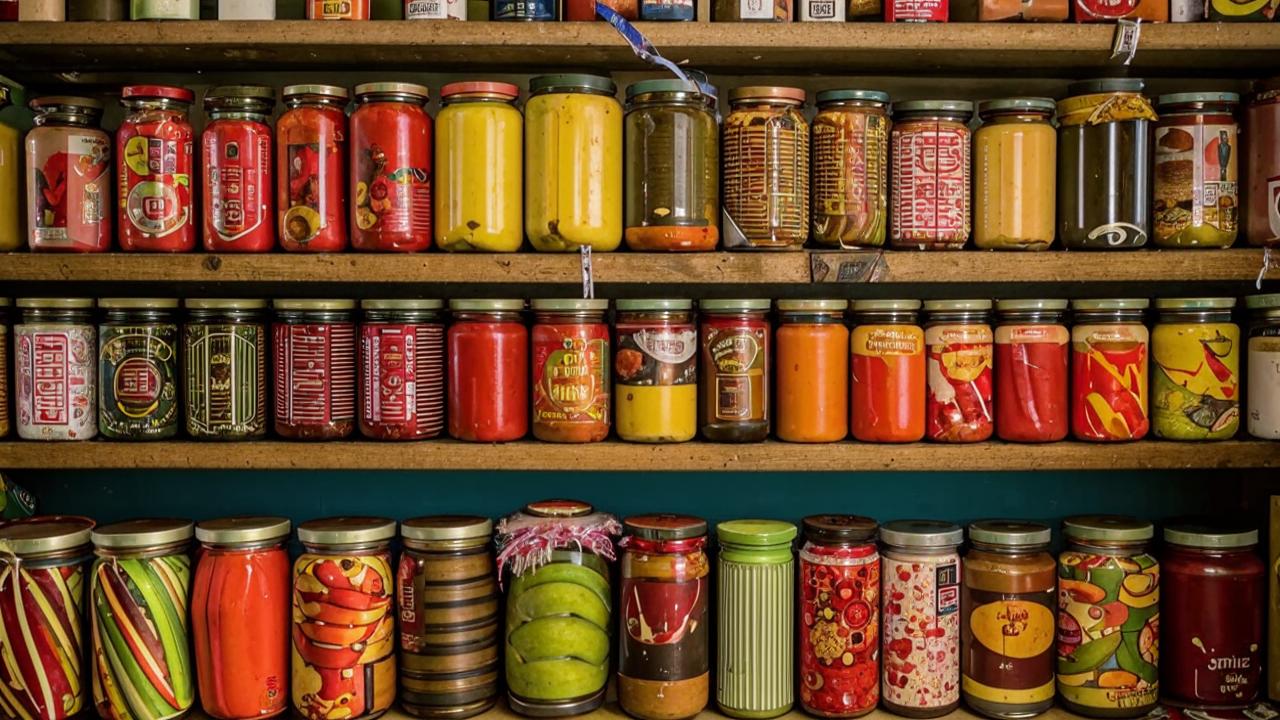Pickled mushrooms are a popular dish in Russia, especially on holidays. However, the question arises: can they be poisoned and what safety measures should be observed?
Benefits of mushrooms
Edible mushrooms are rich in proteins, carbohydrates, fats, vitamins B1, B2, D, C and PP, as well as trace elements such as potassium, iron, calcium, phosphorus, iodine, zinc, copper and manganese.
As studies have shown, the proteins of white mushrooms, chanterelles, mushrooms are almost as nutritious as animal proteins. They have some amino acids necessary for the human body, which are not found in conventional food products.

It should be remembered that, despite the unique properties of mushrooms, they have a number of contraindications.
- First, mushrooms contain a large amount of chitin – a substance that is practically not digested by the body. Therefore, their use in large quantities can lead to the development of inflammation of the pancreas, pancreatitis, liver and kidney disease, exacerbate existing problems with the gastrointestinal tract (GI tract).
- Secondly, mushrooms accumulate dangerous substances, including poisons and heavy metal vapors. At the same time, the older they are, the higher the content of harmful substances in them.
The risk of unpleasant health consequences exists when independently collecting mushrooms and their preparation. This applies to pickled mushrooms.
Danger of pickled mushrooms
Pickling is a method of preservation, in which an acidic liquid, such as vinegar, is used to store products. There are some risks associated with this preparation process.
When the mushrooms are thoroughly cleaned, placed in enough vinegar, and the jar is sterilized, they are safe to eat. The problem arises when the canning process is not done correctly. If any of the steps are not followed precisely, the dish can become a breeding ground for harmful bacteria such as botulism clodystrium.
Botulism, or botulism poisoning, is a rare but serious nerve disease caused by botulinum toxin (BTX), a toxin produced by the anaerobic bacterium Clostridium botulinum.
Botulism is a life-threatening condition because it affects the nervous system and causes muscle paralysis. If medical attention is not given in time, a person can die as a result of poisoning.
Symptoms of poisoning
Botulism can be indicated by the following symptoms:
- dry mouth;
- trouble swallowing;
- double vision;
- speech impairment;
- fatigue;
- limb weakness;
- constipation or diarrhea;
- nausea and vomiting;
- respiratory distress;
- dizziness;
- abdominal pain.
How to avoid it

Doctor of Medical Sciences, Professor, Medical Director of Medical On Group (Medscan Group of Companies)
“Unfortunately, we ourselves create conditions for the development of this bacterium and the formation of a deadly toxin.”
Pickled mushrooms prepared at home are the main food source of botulinum toxin.
According to the expert, if we put mushrooms with particles of earth in the jar, it can contain bacterial spores. When we roll them up and create airless conditions, the bacterium itself is formed from the spore and the production of poison begins. Unfortunately, when opening the jar to taste, a person will not be able to recognize this.

The only sure way to avoid botulism in mushrooms is to prepare them in such a way that no hermetic closure is required.
According to Rospotrebnadzor, the risk of botulism in industrial canning is minimized. The substances used in factory preservation inhibit the transition of spores into toxin-producing forms, as well as inhibit the growth and multiplication of clostridium botulinum.
Nevertheless, it is still possible to get infected with botulism when consuming canned food purchased in stores. This happens when the technological process of production or storage conditions are violated.
For example, in 2017, a resident of the Sverdlovsk region went to intensive care after consuming canned tomatoes bought in one of the chain stores. As local media wrote, according to the results of laboratory tests, experts found in canned tomatoes the pathogen of botulism type A.
Prevention of botulism
The most important rule is not to buy pickled mushrooms homemade from hands and at spontaneous markets.

When self-marinating mushrooms should be well washed, cleaned from particles of earth. Canning can not be spoiled, old and long cut specimens. Also, Rospotrebnadzor experts recommend boiling canned mushrooms for 20-25 minutes before eating – during this time decomposes botulism toxin. Do not eat and products from bloated cans.
Pickling mushrooms should not be made in hermetically sealed jars. The best method of storing mushrooms is pickling and drying.
Poisoning with other toxins
Much has been written about the benefits of mushrooms, but it is important to remember that they are the kind of product that is difficult to digest. For this reason, you should not emphasize them in your diet.
The second reason why it is important to be careful with the consumption of mushrooms is the existence of many false specimens and not following the rules when preparing them, especially when canning and rolling them in a jar without access to air.
Common symptoms of mushroom poisoning are:
- Nausea;
- stomach cramps;
- vomiting;
- diarrhea (sometimes bloody);
- headache;
- dizziness;
- redness (warm and red) of the face and abdomen;
- palpitations.

More serious symptoms include:
- seizures;
- hallucinations;
- breathing problems;
- kidney/liver failure;
- coma;
- death.
Signs of poisoning may appear immediately after consuming a poisonous product or within a few hours. Symptoms that appear within two hours are less dangerous than those that appear later (after six hours).

Can I be poisoned by mushrooms from the store?
When buying fresh mushrooms, care should be taken. Only firm, young specimens should be chosen, since the old ones accumulate toxins that lead to poisoning.
Many experts advise to abandon wild mushrooms in favor of store mushrooms. Supermarkets get already tested variants, and the quality of products is the responsibility of the managers of the retail outlet.
The risk of poisoning with finished products in supermarkets, including canned mushrooms, is minimized. Producers are legally obliged to strictly comply with the production process, and stores are obliged to comply with storage conditions.





